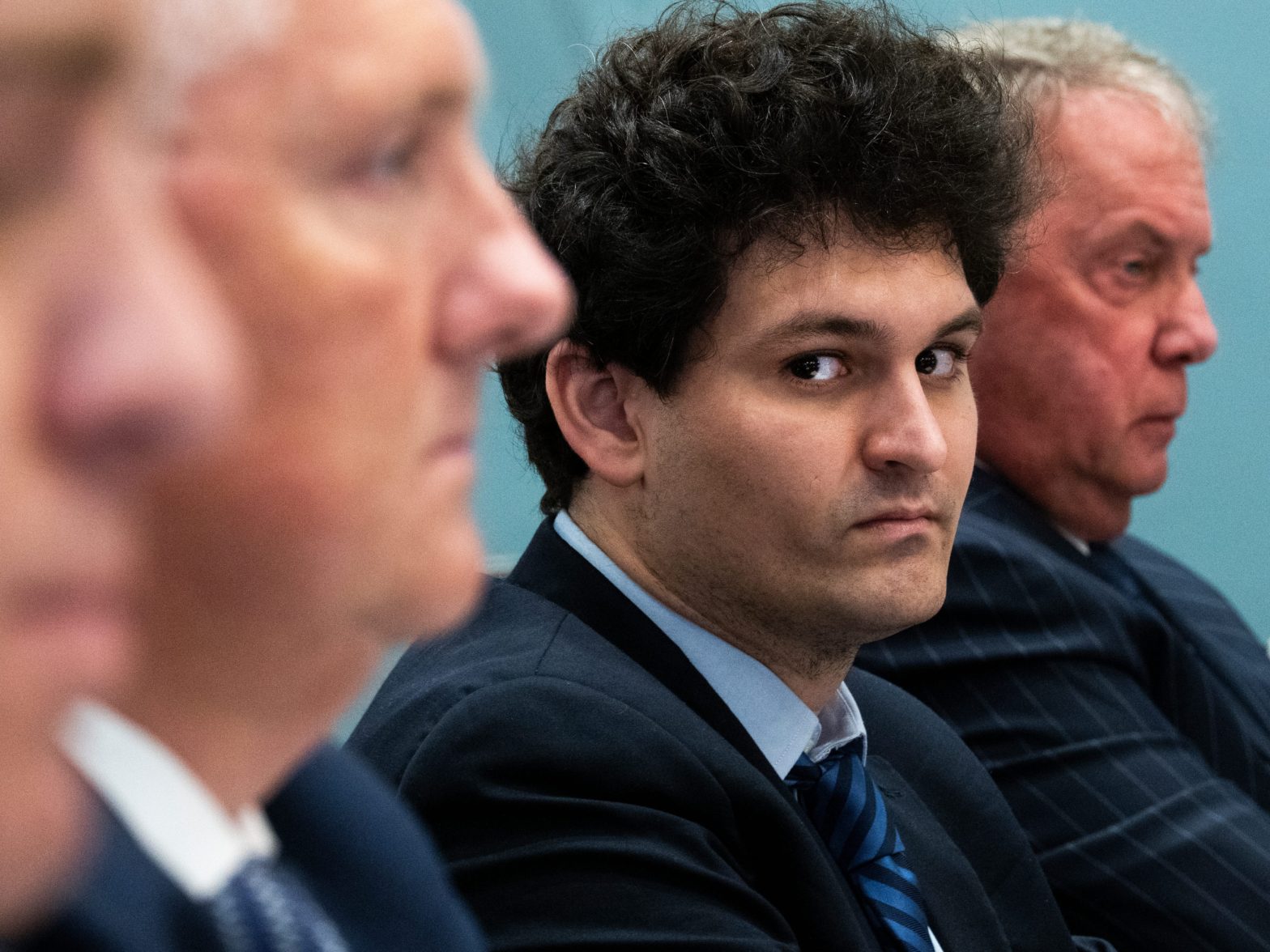Sam Bankman-Fried’s FTX has filed for bankruptcy, after sending shocks through the crypto world. Loading Something is loading.
Thanks for signing up!
Access your favorite topics in a personalized feed while you’re on the go.
Its collapse has sparked fears other companies could fail, in a Lehman moment for crypto. Here’s what experts like Larry Summers, Carl Icahn and Jeremy Siegel have to say about the risks. Sam Bankman-Fried’s FTX sudden and spectacular implosion this week has put the world of crypto on edge — wondering who’s next and whether this is the $1 trillion market’s Lehman moment.
The digital-asset exchange, once valued at over $30 billion, filed for bankruptcy Friday. The move ended a week of mayhem, as emerging details of FTX’s shaky financial situation triggered a crisis of confidence in crypto.
In a bombshell move, Binance said Tuesday it had agreed a potential deal to bail out its rival FTX. Rumors of insolvency, sparked by a CoinDesk report, had driven the exchange’s customers to withdraw $6 billion in just 72 hours.
But then Binance backed away after a review of FTX’s balance sheet, leaving Bankman-Fried to go begging for the billions of dollars it needed elsewhere — to no avail.
The fiasco has sharpened regulators’ attention on FTX, and driven a deep slide in cryptocurrencies, and gotten people making comparisons with Lehman Brothers, the bank whose 2008 collapse is credited with kicking off the financial crisis.
Here’s what 10 experts have to say about the FTX debacle.
Larry Summers, former US Treasury Secretary “What’s going on in crypto in the last few days is going to scare people and is going to scare regulators into action,” the Harvard economics professor said.
Summers was asked by the Information to assess the risk of FTX sparking a Lehman-type collapse.
“Low, because the banking system is better capitalized than it was. Because the Fed is on hair-trigger alert. And because, particularly after what happened during the early stages of Covid, we have more precedent and willingness to throw liquidity at leaks if it happens.”
Billionaire investor Carl Icahn, chairman of Icahn Enterprises”I think it could spill over. This is only one of the dangers you have in our economy,” Icahn said.
Mohamed El-Erian, chief economic adviser at Allianz “The good news is, unlike banks they are not part of the payments and settlement system so we don’t have to worry about big systemic effects,” El-Erian told CNBC.
“The amount of irresponsible leveraging that has been taken, the cross ownership of assets. This sort of thing should not happen.”
The veteran economist said regulators would be playing “massive” catch-up. “What they are seeing, I suspect, will keep them up at night.”
Wharton professor Jeremy Siegel”As some people say, ‘Is this a Lehman moment if it really goes down?’ No! because it actually more than half the value has already gone down, and the financial system has survived very well,” Siegel said about the crypto meltdown.
“One thing that’s really important: Back when Lehman went under, I had money in money market mutual funds. I had money in banks and all the rest. And I said to myself, ‘Thank God, the Fed is backing those assets.’ Crypto doesn’t have that.”
Changpeng Zhao, Binance founder known as “CZ”The Binance boss said the global financial crisis was “probably an accurate analogy” to the rival exchange’s collapse.
“With FTX going down, we will see cascading effects. Especially for those close to the FTX ecosystem, they will be negatively affected,” Zhao said, per the Financial Times.
Mike Novogratz, CEO of crypto financial firm Galaxy Digital “It has been a body blow to trust. Markets are all about trust and trust in the system, trust in other counterparties,” Novogratz told CNBC.
“And this is a tale as old as time to some degree. Some young, charismatic guy in Bermuda shorts with floppy hair charmed the 20 best investors in the world, charmed regulators and was kind of the front man of the whole system,” he added.
“In some ways, this is a lot worse for the infrastructure that was being built up for people to buy, sell, lend and promote coins, and so it will be a setback. It doesn’t end crypto by any stretch,” he said in a separate interview,
Michael Saylor, bitcoin bull and founder of Microstrategy”I think the industry needs to grow up, and the regulators are coming into this space,” Saylor told CNBC.
“It’s going to strengthen the hand of the regulators, and it’s going to accelerate their intervention.”
Jeremy Allaire, CEO of fintech Circle, a small equity holder in FTX”This entire market cycle (down), has given us many opportunities to reflect on deep issues in the market. Lack of transparency, lack of counter-party visibility, and project treasuries and balance sheets anchored in speculative tokens are root causes,” Allaire said in a tweet.
“Finally, as someone who’s been involved in this industry for 10 years, it is disappointing that a technology that was spawned in reaction to the Lehman Bros moment of 2008 has given rise to its own version of the same. We can do better.”
JP Morgan strategists led by Nikolaos Panigirtzoglou “It looks likely that a new cascade of margin calls, deleveraging and crypto company/platform failures is starting,” the analysts said in a note to clients.
“The number of entities with stronger balance sheets able to rescue those with low capital and high leverage is shrinking within the crypto ecosystem.”
